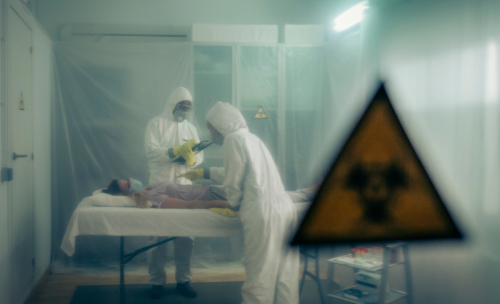
In the city of Portland, Oregon, a public health emergency is unfolding as a highly infectious disease known as Shigella spreads predominantly among the homeless community. This bacterial illness, which is transmitted through fecal matter, has seen a significant uptick in cases, with health officials reporting a worrying surge.
As the year came to a close, the situation reached alarming levels, with 227 confirmed cases of Shigella, 45 of which were reported in December alone. The disease is characterized by severe gastrointestinal symptoms, including bloody diarrhea, fever, and abdominal pain. It poses a particular threat to those living on the streets, where sanitary conditions are often inadequate.
Highly-contagious infection spread by feces breaks out in Portland as homeless crisis sparks disease common in Third World https://t.co/hWqYDNHS2F pic.twitter.com/MS6BAua9tB
— Daily Mail Online (@MailOnline) December 31, 2023
The spread of this disease underscores the broader issue of homelessness in Portland. The presence of a large homeless population using public spaces for sanitation purposes presents a dire public health challenge. The risk of contamination and subsequent disease transmission is heightened under these circumstances, affecting not only the homeless but potentially the wider community.
Health officials have emphasized that while the risk to the general public remains low at this time, good hand hygiene is paramount in preventing the spread of both respiratory and diarrheal illnesses. However, the current outbreak raises questions about the adequacy of resources and support for the city’s most vulnerable residents.
Portland Residents Suffering From Deadly Disease Caused by Human Poop. ❌Health official have warned of a massive surge in shigella cases in Portland due to the widespread contamination of human excrement in the city.🤦🏼♀️ Shigella is a deadly bacteria that spreads via fecal matter,… pic.twitter.com/oCUiuBUiuo
— Wtfportland (@Wtfportland1) January 2, 2024
Critics argue that the city’s approach to its homeless crisis has been insufficient, pointing to the current health emergency as evidence of the need for more robust interventions. They contend that allowing individuals to live without shelter and basic sanitation is not only an ethical failing but also a serious public health oversight.
The response to the outbreak has been varied, with some calling for increased support and services for the homeless, while others advocate for more stringent measures to address the public health risks associated with unsheltered populations. The debate continues as the city grapples with finding a balance between compassion and public safety.
Amidst this crisis, there is a call to action for residents and community leaders to come together to find sustainable solutions. Whether it be through donations, volunteering, or advocating for policy changes, the community’s involvement is crucial in addressing both the immediate health concerns and the underlying issue of homelessness.
As Portland confronts this contagious illness, the situation serves as a stark reminder of the interconnectedness of public health and social issues. The city’s ability to effectively manage this crisis will depend on a comprehensive approach that addresses the needs of the homeless population while safeguarding the health of all its residents.












